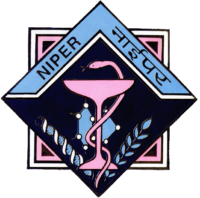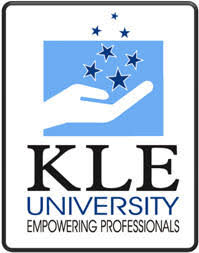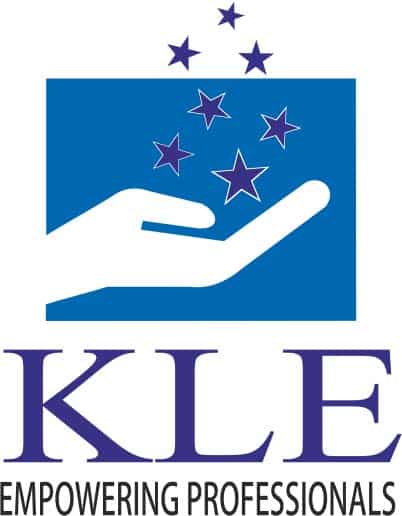Latest Applications Open 2024:
NIPER JEE 2024 Syllabus- The NIPER will be producing the syllabus on the official site. T
he syllabus will be including the topics appearing in the Joint Entrance Exam(JEE) which have been given with the purpose of providing them better prepared. The exam will be an offline medium.
- In the Joint Entrance Exam, the questions will be structured in only English which will be difficult to interpret questions and anyone can relate to it.
- The NIPER JEE 2024 is the two-hour exam.
- The question will be in Objective form. So you need to answer each question in the given time.
- There will be a total of 200 questions in the entrance exam.
- The question will be following the negative marking.
NIPER JEE 2024 Syllabus
Secondary metabolites Phytochemistry Methods of extraction, isolation, and characterization of natural products Bio-synthetic pathways Important therapeutic classes Primary metabolites Marine natural products Plant growth regulators Spectroscopy Dietary antioxidants
Stereo-chemistry
Pharmacology and toxicology Evaluation of formulation, principles, and methods of release control in oral formulations Bio-availability, bio-equivalence studies Compartmental modeling Packaging Dosage forms Additives of formulation, types, examples, advantages, disadvantages, drug excipient interaction, incompatibility, various types of incompatibilities (TDDS) Fischer, sawhorse and Newman projection formulas. Standardization of natural products Various adrenergic, cholinergic and other receptors
Pharmaceutics and formulation (Pharmaceutical Technology) Pharmacokinetics Pharmacodynamics The pharmacological effect, desired, undesired, toxic, adverse effects Bioavailability, bioequivalence, various factors of ADME
Latest Applications For Various UG & PG Courses Open 2024
-
- Parul University | Admissions Open for All Courses 2024. Apply Now
- Chandigarh University | Admissions Open for All Courses 2024. Apply Now
- NIIT | Admissions Open for All Courses 2024. Apply Now
- KL University | Admissions Open for All Courses 2024. Apply Now
- Alliance UG | Admissions Open for All Courses 2024. Apply Now
- GD Goenka | Admissions Open for All Courses 2024. Apply Now
Pharmaceutical analysis
Stability testing of pharmaceuticals, various stability tests, kinetic studies, shelf-life determination, thermal stability, formulation stability. Tests: physical and chemical tests, limit tests, microbiological tests, biological tests, disintegration, and dissolution tests. Transdermal drug delivery systems (TDDS): principles, absorption enhancers, evaluation of TDDS. Carriers in DDS: polymers and their classification, types, carbohydrates, surfactants, proteins, lipids, prodrugs, etc.
Osmolality, osmolality, osmotic pressure, conductivity, Preservatives, Media for bioassay. Drug delivery systems (DDS): NDDS models, osmotic pumps, various release patterns. Crystallinity, polymorphism, solvates and hydrates, crystal habits, porosity, surface area flow properties. Dosage forms, Stages of dosage form development Chromatography- detailed QA and QC: GLP, TQM, ISO system.
Biotechnology and Biochemistry
Classification of enzymes and the mechanism of their function of action of Blotting techniques(Western, southern) Gel electrophoresis Immunoassays, protein RNA synthesis.
Chemistry
Basic organic chemistry and biochemistry Stereochemistry, Osazone test, Mutarotation, Medicinal chemistry, and Bulk Drugs, Keto-enol tautomerism, IUPAC nomenclature, Introduction to thermal methods of analysis, Introduction to Redox reactions, Imine-enamine, Hybridization, Amino acids proteins, Basic methods of synthesis of various organic compounds, Named reactions, Various Heterocycles, Heterocycle synthesis, reactions, Tautomerism, Spectroscopy, Resolution methods, Reaction kinetics, first second third and pseudo-first-order reactions, radiolabeling for determination of mechanism. The racemic mixture, R and S nomenclature, Reactions like Cannizarro’s reaction, Pericyclic reactions.
Ester hydrolysis, Huckel’s rule reaction mechanisms, E and Z isomerism, Common condensation reactions like Aldol, Claisen Perkin, Dickmann, Darzen, Chromatography, Carbohydrates classification, Aromaticity.
Aptitude
Simple Mathematics, logical reasoning, and data analysis, questions based on the English language.
Pharmacology
Bioavailability, bioequivalence, various factors of ADME, Bioassay methods, various requirements. Brief knowledge of the statistical tests. Chemotherapy and pathophysiology- knowledge of antibiotics, their mode of action and the microorganisms responsible for various common diseases. Diseases: a study of the pharmacology of the diseases and drugs used with the mode of action especially of diabetes, malaria, leishmaniasis, TB, hypertension, myocardial ischemia, inflammation, and immunomodulation. Study of the basis of threshold areas of work in NIPER in pharmacology dept. Mentioned in the brochure. The detailed study of CNS pharmacology especially opioid receptors.
Pharmacokinetics, pharmacodynamics, pharmacological effect, desired, undesired, toxic, adverse effects. Drug metabolism: various pathways and other details. Drug interactions, agonist, antagonist, Mechanism of drug action, drug-receptor interaction. Various adrenergic, cholinergic and other receptors, partial agonist, protein binding, drug distribution, distribution volume, excretion pathways, etc.
Phytochemistry
Methods of extraction, isolation, and characterization of natural products. Various separation techniques used for the isolation of natural products. Biosynthetic pathways. Primary metabolites, their examples, Secondary metabolites, various classes of secondary metabolites (eg. Alkaloids, glycosides, tannins, lignans, saponins, lipids, flavonoids, coumarins, etc.). Important therapeutic classes: antidiabetics, hepatoprotectives, immunomodulators, nutraceuticals, natural products for gynecological disorders, anti-cancer, anti-viral (mainly anti-HIV), adaptogens, etc.
Dietary antioxidants, Marine natural products, plant growth regulators. Fischer projection formulas. Biological sources of important classes of natural products. (Selected ones only) Standardization of natural products, analytical pharmacognosy. What is the difference between natural products and pharmacognosy? Some knowledge about types and preparation of ayurvedic formulations like asava, arista, etc.
Also, Check
Latest Applications For Various UG & PG Courses Open 2024
-
- Parul University | Admissions Open for All Courses 2024. Apply Now
- Chandigarh University | Admissions Open for All Courses 2024. Apply Now
- NIIT | Admissions Open for All Courses 2024. Apply Now
- KL University | Admissions Open for All Courses 2024. Apply Now
- Alliance UG | Admissions Open for All Courses 2024. Apply Now
- GD Goenka | Admissions Open for All Courses 2024. Apply Now
If you have any other Questions related to NIPER JEE Syllabus 2024, you may ask your Queries by commenting below.


